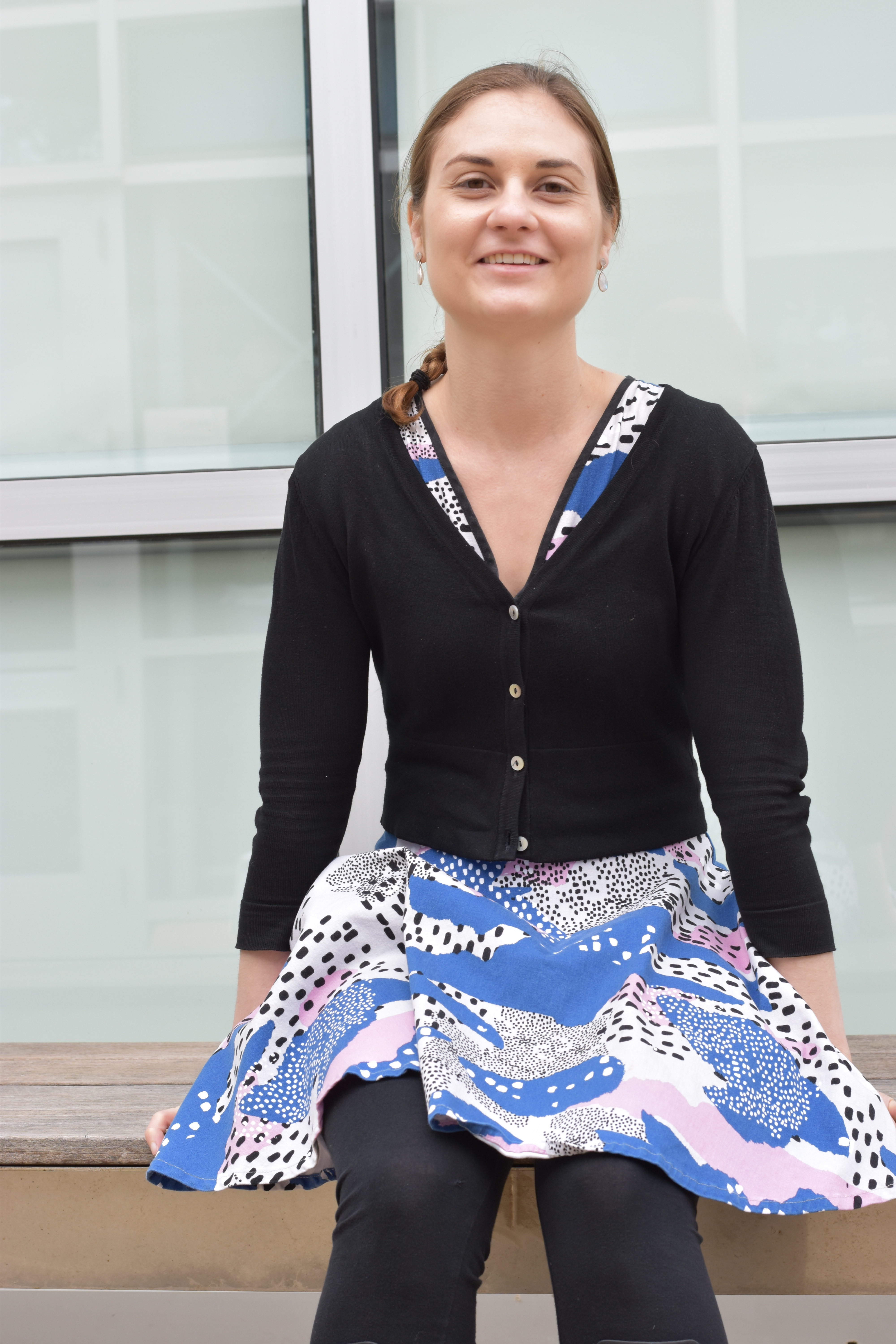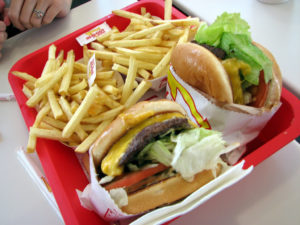Natalie Freed, who established Lick-Wilmerding’s present computer science program, leaves Lick-Wilmerding this June to become an entrepreneur in the tech realm. Freed
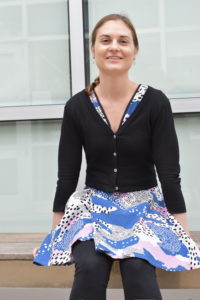
photo by Robin von Breton
is an inspiring mentor in CS and design. She sees coding and programming as an imaginative escape, “a creative medium.” She says, “That’s one of the big reasons that I’m interested in it. It’s a raw material to create things with, things that can be artistic or practical or fun or experimental,” says Freed.
In her classes at Lick, Freed hopes students embrace coding, rather than shy from it.
This year, Freed taught Computing One and Computing Two. Most students in Computing One had never programmed before. She says, “Many students have a misconception that one has to have advanced mathematical skills in order to excel with coding.” Freed finds that many students learn they love to code after being immersed in the class. Julia Moser ‘19, a student in Computing One, notes “Before attending Lick, technology or computer science seemed like such a foreign concept. Taking the first year of tech arts alone gives students a ton of exposure to what is available to them.”
Freed graduated with a Bachelors and Masters in computer science from Arizona State University, earned a Masters at the Massachusetts Institute of Technology, then moved to San Francisco. Before coming to Lick, Freed worked as a New Media fellow at the San Francisco Exploratorium. She joined Lick’s Technical Arts Department in 2013.
Freed says that when she “originally fell in love with programming, it was a lot more about language.”
Freed is fascinated, concerned, and excited by the challenge of sweeping and constant changes brought about by the new artificial intelligence-based technology. The impact of tech on society is discussed in her classes and in all classes in Lick’s Tech Arts Department. Students discuss professional opportunities, business models, rigorous demands on the educational system, the importance of critical and design thinking, and the ethics of AI’s impact on humans’ physical and emotional development.
Freed cites “interesting conversations about technology and gender stereotypes and diversity” and the future of the workplace and the nature of work in our society. She sees the stereotype that males are the dominant sex as especially destabilizing to the position of women in society and in tech environments. She notes, that technology is marketed to boys at a young age. Girls are often encouraged to play with their Barbie Dolls while video games and Legos are given to boys. This social mindset has made females feel they have no place in the tech industry. Through the mandatory two-year requirement in the shops, Lick has sought to ensure that all students have access and prove that everyone can find an aspect of Tech Arts that appeals to them.
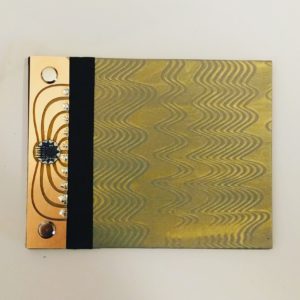
photo by Natalie Freed
Freed points to the extreme income disparity the tech industry has created. Freed notes the socioeconomic divide engendered by the tech industry and apparent in the Silicon Valley and San Francisco. Arguably. Technology has created new support industries, new angles on old industries, and jobs – but it has also displaced many. Uber, a transportation and delivery company, gives a job to basically anyone who can legally drive a vehicle and has a clean record; the median salary is $29,000 a year. However, old style taxi companies and their drivers are hard-pressed by the new style of “Livery service,” smart phone enabled on demand transportation. Some entrepreneurial entertainers have made it big. YouTube, a video format entertainment site, has allowed users to self-create themselves as “YouTube Celebrities” and earn large incomes. Freed acknowledges that many of the jobs created through technology, however, are service jobs made to support the people working in the actual tech companies. AI streamlines factories and many industries that formerly required many workers. They now require only a few highly trained employees. According to Freed’s perspective, “we have a real social class and wage disparity problem. There’s a message here that if you are driving people around or feeding people you are supporting the people who are doing the ‘real work.’ And those who only support tech workers earn wages they are barely able to live off in this area. You end up with a hierarchical, economically segregated community.”
Freed explored the idea that soon there will be only select jobs available and not everyone will have work. There is some talk about a future in which citizens are paid a national wage, money paid to citizens living in the U.S on a regular basis even if they are not currently working. In Oakland, there is an underground project that as am experiment is handing out wages regularly to families of different backgrounds, observing how that impacts the dynamic of their family structure and overall comfortability with their lifestyle.
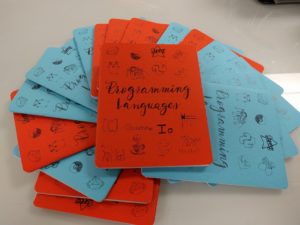
photo by Natalie Freed
Freed also points to the experiment of supplying jobs for workers to earn a living that entail work without a purpose. She says in Japan, some people are paid to perform tasks that are unnecessary, such as washing a dish repeatedly or making things that will later be destroyed. Many are afraid that the morale of people will disintegrate if they feel they have no purpose in the workforce or world in general. Technology is bound to spark many ethical questions for different nations and groups of people.
Freed encourages Lick to talk more about the future of technology and the future of society, “I would like to go farther in helping students navigate technology in the news and in practice — beyond the immense structural changes that its impact will have on society. “There are so many issues we have to deal with like security, and privacy, and what companies are doing with your data.”
The expansion of technology will fuel learning at Lick and will require reflection and discussion along with its’ building influence in our lives. As Freed says farewell to LWHS, she knows Lick will keep up the creativity in building various technical programs and she hopes students will discuss the ethical implications of technology in the future.




